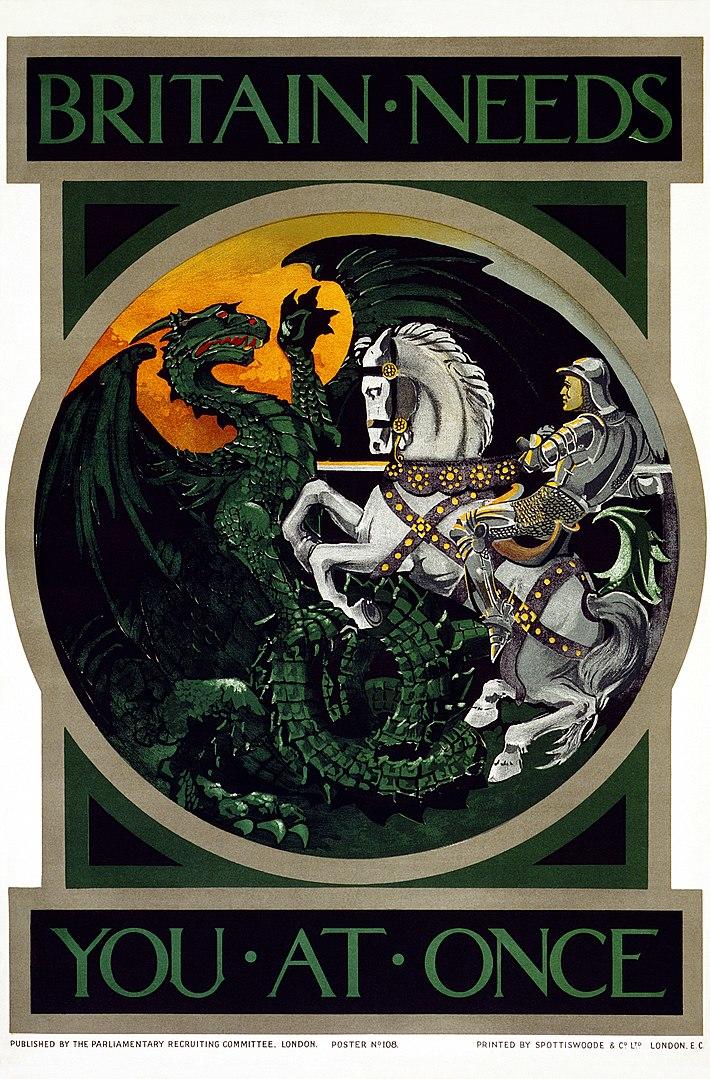Chapters

To say that World War One was devastating would be a colossal understatement. The war years of 1914-1918, and a more prolonged period of 1914 and 1939 witnessed changes in Britain, driven by the aftermath of the Great War and the interwar period's political, and social upheavals.
From the impact of war on British politics to the emergence of radical political movements, economic struggles, social transformations, and the complex dynamics of Anglo-Irish relations, this period marked a pivotal chapter in British history. In this revision guide, we will explore the multifaceted impact of the Great War and its aftermath on Britain, focusing on the way that the war made an impact for many decades.
All the horrors of all the ages were brought together; not only armies but whole populations were thrust into the midst of them… Merchant ships and neutral ships and hospital ships were sunk on the seas and all on board left to their fate… Every effort was made to starve entire nations into submission, without regard to age or sex. Monuments and cities were smashed by artillery. Bombs were cast down from the air indiscriminately. Poison gas stifled or seared the soldiers. Liquid fire was projected upon their bodies. Men fell from the air in flames, or were smothered in the dark recesses of the sea.
Winston S. Churchill

The Impact of War on British Parties and Politics
The Labour Party had risen to prominence not long before the war, but the Great War fundamentally altered the British political landscape, leading to the rise of coalition governments and the decline of the Liberal Party. Churchill himself flitted between Liberal and Conservative parties during this period.
The need for national unity during wartime saw the formation of coalition governments, with political parties setting aside their differences to focus on the war effort. However, the strain of governance took its toll on the Liberals, whose support waned amidst internal divisions and challenges from emerging political forces.
Meanwhile, after the war, the Conservatives solidified their position in British politics, positioning themselves as a stable and reliable governing party. The influence of the Labour Party grew significantly during this period, as it advocated for the rights and interests of the working class, gaining traction and support among the electorate. The first Labour government was in place from 1923–1929, but power continued to move between the parties in this time as people sought solutions to the impacts of war, including serious financial challenges.
Political Developments in the Interwar Years
The interwar years were marked by significant political developments, including electoral reform, changes in government leadership, and the emergence of radical political movements. Electoral reform aimed to modernise the electoral system and increase representation, reflecting shifting political dynamics and public sentiment.
Conservative and Labour governments alternated in power, each grappling with the challenges of post-war reconstruction, economic recovery, and social reform. The rise of National governments, formed by coalition alliances, sought to address national crises and maintain stability amidst political and economic uncertainties.
The abdication crisis of 1936 shook the foundations of the British monarchy, King Edward VIII decided to marry divorced American socialite Wallis Simpson, and the feeling was that the British public would not accept her as queen due to her previous divorce. Edward was advised to abdicate before marriage, and George VI would then become king.
At this time, we also saw the emergence of radical political movements such as the British Union of Fascists (BUF) and Communist Party. These movements exploited social discontent and economic hardship, presenting alternative and more far-right and far-left visions for British society and governance.
Economic Developments
Like any war, this brought economic challenges to Britain, leading to increased state intervention in the economy and struggles in staple industries and mines. The General Strike of 1926 highlighted tensions between labour and capital, reflecting deep-seated inequalities and grievances among the everyday working force of the country.
Government finances and the Gold Standard became contentious issues, as policymakers grappled with economic instability and fluctuating currency values. The onset of the Great Depression in the late 1920s exacerbated economic woes, leading to widespread unemployment, poverty, and social unrest. In 1931, the Government withdrew from The Gold Standard, a system that had been designed to stabilise the country’s finances but was seen by many as holding the country back from growth.
Social Developments
The Great War transformed social attitudes and structures in Britain, particularly in the roles of women, the working classes, and regional divisions. Much-publicised is the fact that women were now entrusted with more work roles due to the number of men who had been sent to war. Women's participation in the workforce during the war catalysed changes in gender norms and paved the way for greater gender equality in the post-war period. Some of the outdated views on women shifted, though there was much work to do.
The condition of the working classes varied across regions, with industrial areas experiencing economic hardships and social deprivation. Changing attitudes in the 1920s and '30s reflected the shifting cultural landscape, with the growth of the media shaping the public and political parties with extreme movements seeking to change the way people lived, promising a better future.
Legislation and reforms in housing, education, and welfare sought to address social inequalities and improve living standards for British citizens. Initiatives such as the Housing Act of 1919 aimed to provide affordable housing for the working classes, while educational reforms expanded access to schooling and vocational training.
The Condition of Ireland and Anglo-Irish Relations

The Great War had significant implications for Ireland, culminating in the Easter Rising of 1916 and the Anglo-Irish War. The Government of Ireland Act of 1920 attempted to address Irish Home Rule, but tensions persisted, leading to the Anglo-Irish Treaty of 1921 and the partition of Ireland. The treaty provided “ 26 counties of Ireland a parliament (the Oireachtas) with jurisdiction over most domestic affairs, significant fiscal autonomy and a military force.”
Anglo-Irish relations remained strained in the lead-up to the Second World War, with a divided Ireland reflecting the complexities of colonialism, nationalism, and political identity.
War itself brought about immense change and upheaval in Britain, of course. Many families were grieving, and the whole country had to deal with many of the economical struggles and political changes.
This era left its mark on British history. Britain navigated the turbulent waters of the early 20th century, the legacy of the Great War and its aftermath continued to have an impact including huge financial struggles.
Questions
Test your knowledge and understanding with these questions:
Select one correct answer below:
Which political parties held power at this time?
Please select a response.
Labour, conservative and liberal parties all held power at different times during this period.
Why did King Edward VIII decide to abdicate?
Why were Anglo-Irish relations so strained at this time?
Summarise with AI:








